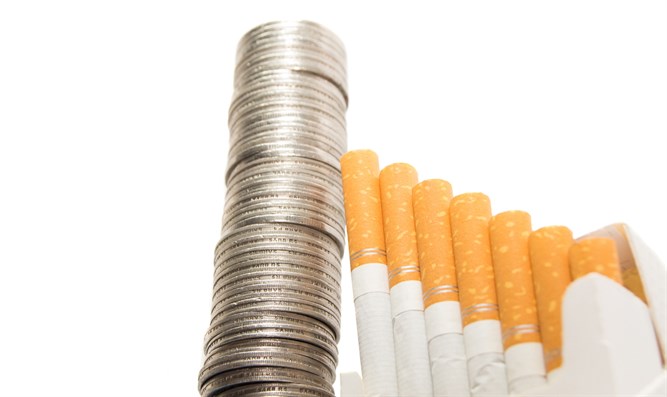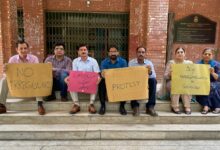ATSC annoyed over tax reduction on tobacco products

As a country of 24 million active tobacco users, Pakistan stands as one of the world’s top tobacco-consuming countries. Although 86 percent of its adult population knows that tobacco use damages human health (GATS, 2014), some 45 percent of households report tobacco use.
“Alliance for Sustainable Tobacco Control” in Khyber Pakhtunkhwa expresses concern and disappointment over undermining its own decision meant to curtail the use of tobacco and Naswar, the KP government submitted an amendment to the finance bill in the assembly to reduce tax on Virginia tobacco by Rs6, on white leaf and Rustica by Rs3 and Rs2.5 on Naswar. In the budget approved by the provincial assembly for the current year, the tax was increased by up to Rs12 per kg for tobacco and Rs5 per kg for Naswar to collect a total of Rs75 billion in taxes.
Blue Veins, a local non-governmental organization, under the initiative of ‘promoting sustainable tobacco control and smoke-free environment in Khyber Pakhtunkhwa’, has established an “Alliance for Sustainable Tobacco Control”.
The Alliance comprises diverse membership from civil society organizations including CSOs, NGOs, trade bodies, medical professionals, online social groups, tobacco control advocates, media representatives, etc.
Qamar Naseem, Program Manager Blue Veins added, “Tobacco control should be a top priority in health issues as well as for the reduction of poverty. The Government of Pakistan is a signatory to the World Health Organization (WHO) and Framework Convention on Tobacco Control (FCTC).’’
He moreover said, “Tobacco use kills eight million people every year and is the leading cause of preventable deaths globally. Evidence shows that significantly increasing tobacco excise taxes and prices is the single most effective and cost-effective measure for reducing tobacco use. It is also a measure specifically called for in Article 6 of the WHO Framework Convention on Tobacco Control”
Dr. Ateeq, member of the Alliance and representative of the District Coordination Council said, “Raising taxes on tobacco products which leads to an increase in their price makes tobacco less affordable. When tobacco becomes less affordable people use it less and youth initiation is prevented. Because youth and low-income groups are more responsive to increases in tobacco prices, they disproportionately enjoy the health and economic benefits of quitting and not starting.”
Dr. Safat Ullah, Research Associate, Khyber Medical University Peshawar said, “Saving lives with tobacco taxes lessen the enormous healthcare burden and economic losses that result from tobacco-related diseases. Tobacco taxation is also relatively inexpensive to implement and generates significant revenues over short and medium terms.”





